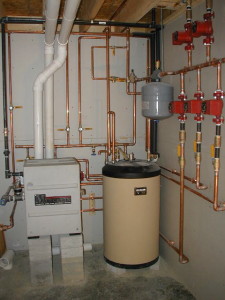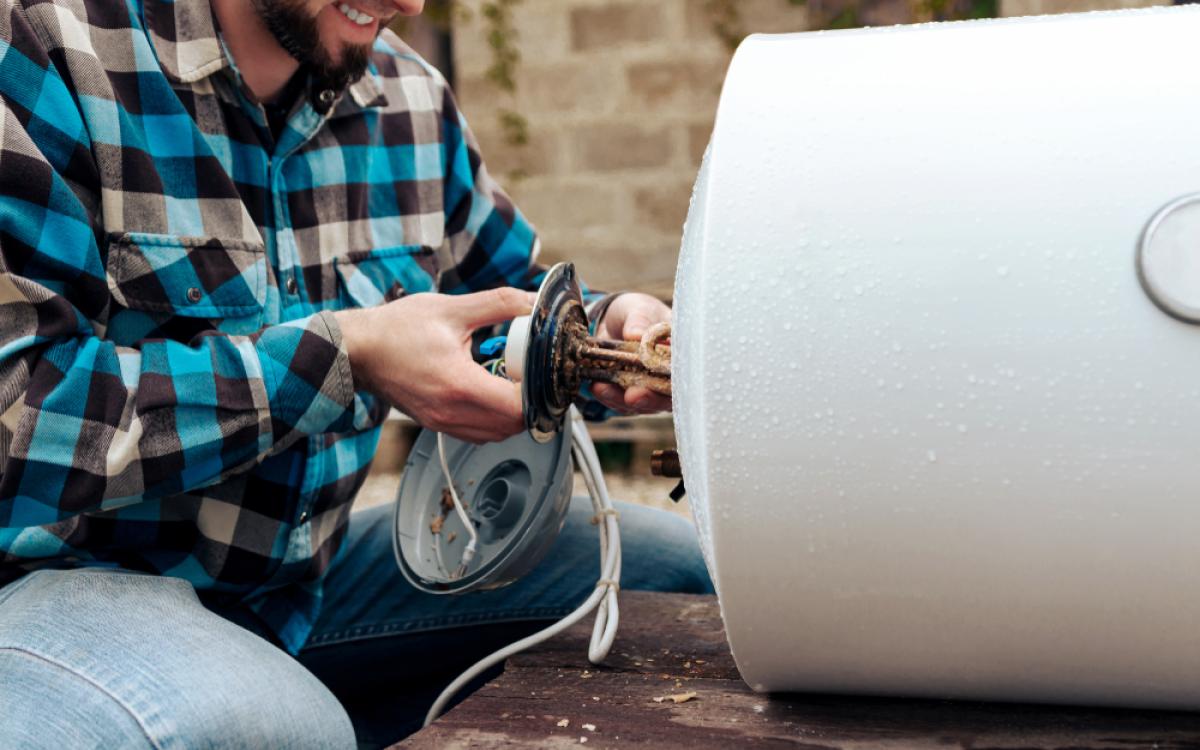Important Procedures for Residential Property Owners Handling Broken Water Heaters
Important Procedures for Residential Property Owners Handling Broken Water Heaters
Blog Article
Have you been searching for information and facts about Water Heater Burst?

Whether it lies in the cellar or a separate area, damaged water heaters can create stress. A standard system holds 80 gallons, so an over night leakage will lead to a flood. This leads to major property damage with drenched wall surfaces and also floors. Besides, having no hot water supply is also troublesome. If you are dealing with these problems, remember of the following:
Call the Plumber
After doing the very first 2 safety steps, you have to call your plumber ahead right away to take care of a burst hot water heater. Remember that your device will certainly not just conk out substantially overnight. There are normally signs that your aging hot water heater has debris build-up in the inside. Bear in mind of the following:
Do not wait on major flooding to call the plumber. Already, you will certainly have to invest even more to recover your property. Rather, as quickly as you detect these indicators, have actually a professional involved check your water heater storage tank. Commonly, hot water heater have a life-span of concerning 8 to 12 years. With normal inspection and also maintenance, you can prolong its life.
Cut Off the Cold Water Supply
Cut off the containers tap water supply from the resource. This goes from your major water line into the storage tank. When your container is in good condition, the cold water quits filling out when the tank is full. However given that it is leaking, the water will continue to stream. Close the shutoff found on top of the heater. Rotate this clockwise to close it off. If you can not find it or reach it, you need to switch off that main water supply line outside your property.
Shut Off Power Source
Before calling the plumber, shut off a gas water heater by transforming the temperature level dial. This will certainly avoid electrocution, specifically if there is a leakage as water is a conductor. Generally, the home heating aspect shuts off when the water strikes a certain temperature.
Tidy up Property
After calling the plumber, file damages by taking notes as well as images so you can claim your home owner's insurance. Get rid of any standing water to stop mold and mildew as well as mildew development. If you have a submersible water pump, utilize that to drain pipes the water.
Bear in mind, if you observe any type of concerns with your water heater, call the pros right away. You can not take this issue gently because a malfunctioning thermostat can elevate water temperature to an alarmingly high degree, causing unintended burns. A broken heating system stress safety valve can additionally create a surge. For finest results, get an annual check so your system gets examined, cleaned up, drained, and refilled, ensuring ideal performance.
After doing the first two safety steps, you need to call your plumber to come right away to repair a fractured water heating unit. Instead, as soon as you detect these indicators, have an expert come to examine your water heater container. Before calling the plumber, closed off a gas water heater by transforming the temperature level dial. If you have a completely submersible water pump, use that to drain pipes the water. Remember, if you notice any type of problems with your water heating unit, call the pros right away.
Is My Water Heater Broken?
The Water Heater is Old
No appliance will last forever. This includes a home’s water heater. During its lifespan, residents are going to face a situation where a new water heater installation will be necessary. The biggest problem with this is that most people are not sure when their water heater expires. Not knowing this can lead to serious risks if the unit begins to act up due to old age.
Most makes and models of water heaters will last between eight and 10 years. While 10 years is the age when water heater replacement is highly recommended, the need to replace the unit may occur before this time or after. If the unit doesn’t show any symptoms of a problem, it is a good idea to replace it at the 10-year mark (from the manufacture date).
Some of the symptoms that indicate a new unit is needed include rusting, leaks, noises, and a failure to heat up the water. Also, note that not all units have a 10-year life expectancy. The main exception to this rule is that a gas unit will last for six to eight years.
Rusty Heater Inlet Valve or Water
While steel is the strongest material on earth, it does have a weakness – rust. If corrosion occurs on a steel surface, it will begin to spread and eat through the steel in certain areas. On water tanks and pipes that are made of steel, rust is a warning sign of an impending leak.
The issue for many is trying to figure out if the rust is coming from the water heater or the pipes that lead to the faucet. If rust is seen, it is a clear indication that water heater service from the professionals is needed.
If rusty water appears out of the faucets in the bathtub or sink, it likely means a rusty water heater. If there is rust near the water inlet or the pressure relief valve, rust has likely developed inside the tank. If tap water appears rusty, it may be an issue with the pipes.
Strange Sounds from the Water Heater
Are there strange sounds coming from the tank? As a water heater gets older, rumbling noises may develop and get louder and louder as the water in the tank heats up. In homes where large amounts of hot water are used, the issue is likely going to be even more obvious when more serious issues arise. If there is a strange or loud noise coming from the unit, it is probably because of sediment buildup. A good way to remedy this problem is by flushing the heater. If this does not work, then a new unit may need to be installed.
Leaks
As a water heater gets closer to the end of its useful life, there is a higher chance there will be water around the tank. If there is water, this usually means leaks are occurring. Based on where the unit is located in the home, a leak may result in serious property damage.
Leaks are usually caused by expansions in the metal tank. The expansions occur as time passes and as the inside body of the tank is exposed to multiple heating cycles per day. When a fracture forms, the gap will be slight enough to hold the water in; however, in more serious situations, this will not be the case. If the tank is idle, the water will not leak but when the metal expands during each heating system, small amounts of water will get through the gap.

As a fervent person who reads on Broken Water Heaters, I was thinking sharing that piece of content was a smart idea. Sharing is good. One never knows, you could be helping someone out. Kudos for your time. Come back soon.
Phone Report this page